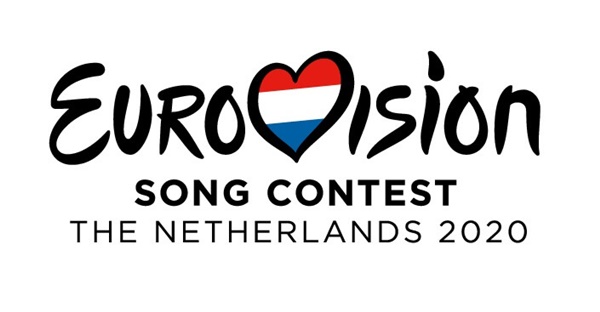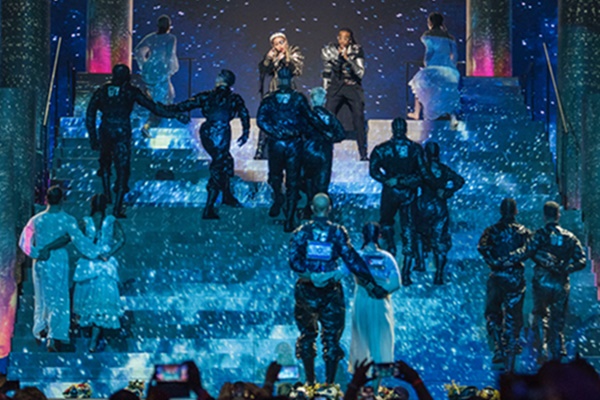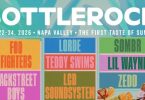Eurovision 2020 still may be nine months away but buzz already is building for the annual song contest.
Earlier this month it was announced that Rotterdam, Netherlands, will host the next contest after the country claimed victory this year in Tel Aviv, Israel. The contest will take place on May 12 (semifinal 1), May 14 (semifinal 2), May 16, the grand finale. Continue on for more on Eurovision 2020 song contest…

It is broadcast in Europe and will likely be live-streamed. Check out the official website, Eurovision World, for all the particulars, including a running countdown clock, polls, tickets.
Duncan Laurence won with the song “Arcade,” giving the Netherlands its fifth win, it’s first in 44 years.
As anticipation grows for the next year’s competition, interest also is heightened at SBR’s top betting sites which will handicap and offer odds right up to the announcement of the next best song.
What Is Eurovision?
Of course, some of you may be wondering what all the fuss is about – we’ll tell you.
The Eurovision Song Contest was created in 1951 with the intended purpose to bond European countries and people in the challenging post-World War II years.
Think of it as “European Idol” or “The X-Factor” competition for songs – on steroids. The original organizers wanted each country to perform a song that represented their country’s culture.
The competition evolved from somewhat tame, folksy songs sung in the country’s native language to the now “anything goes” competition that is marked with a wide range of music.
Over the years, ABBA, Katrina and the Waves and Cliff Richard have performed the competing songs with ABBA actually winning the contest in 1974 with “Waterloo” and French-Canadian Celine Dion singing the winning song in 1988.
As of late, the competition has seen a number of novelty acts but overall solid Europop has ruled the day and the contest. Organizers are quick to point out that quality usually wins the day.
How Does It Work?
In a nutshell, participating countries each have a national contest where they vote on what song will represent them in the Eurovision Song Contest.
The “Big Five” countries – France, Germany, Italy, Spain and the United Kingdom go immediately to the finals. Other participating countries compete in two semifinal contests where the 20 countries with the most votes go to the finals to compete with the “Big Five.”
The finals, 26 countries have about three minutes to wow the continent, which does prompt some unforgettable performances and some, that are, well, just plain weird.
The continent then votes, plus a jury of professionals, and a winner announced. Fame sometimes follows, but fortune not so much.
The winner gets a trophy and their home county hosts the next year’s contest.
Best And Most Confusing Performances:
Among the best songs and performers according to Eurovision expert watchers:
1969: Lulu singing “Boom Bang-A-Bang,” a nice representative to ‘60s pop that hit No. 2 on the UK Singles chart. The song was briefly banned in the ‘90s due to its possible controversial title.
1974: The not-yet-popular quartet won the top prize for “Waterloo” which helped crack them into superstardom around the globe.
2006: One of the most memorable and controversial winners came from Finland when Lordi, wearing horror masks, too the state in Athens and won over the voters with “Hard Rock Hallelujah.” Yes, they really won.
Of the more recent more interesting performances:
2006: A band calling themselves LT united from Lithuania hit the stage and sang the ballsy “We Are the Winners (Of Eurovision).” Yeah, they came in sixth.
2012: Buranovskiye Babushi AKA The Grannies of Buranovo performed “Party for Everybody,” which was sung in Udmurt, the native tongue of Udmurt Republic, a region of the Russian federation. We think they are the only group to actually bake cookies in a kiln onstage. Seriously.
2013: Cezar singing “It’s My Life” (not the Bon Jovi song) in falsetto, representing Romania, and dressed as a flashy vampire. Not enough to get your attending we’ll raise the stakes with a red, flowing tarp that we think was a river or sea of blood and acrobats. That’s all we got.








